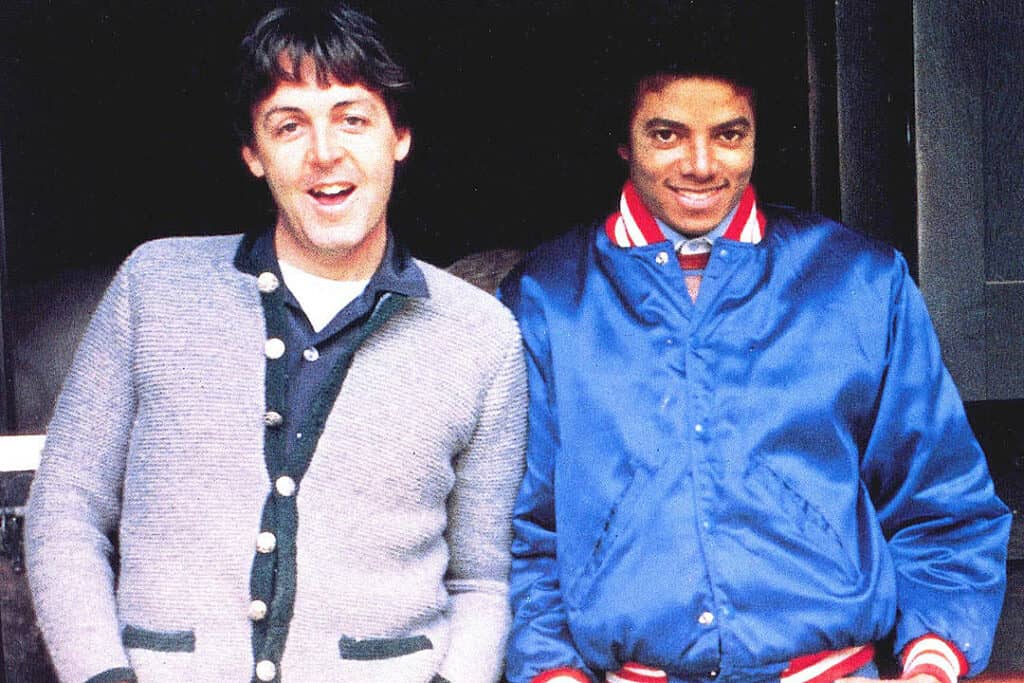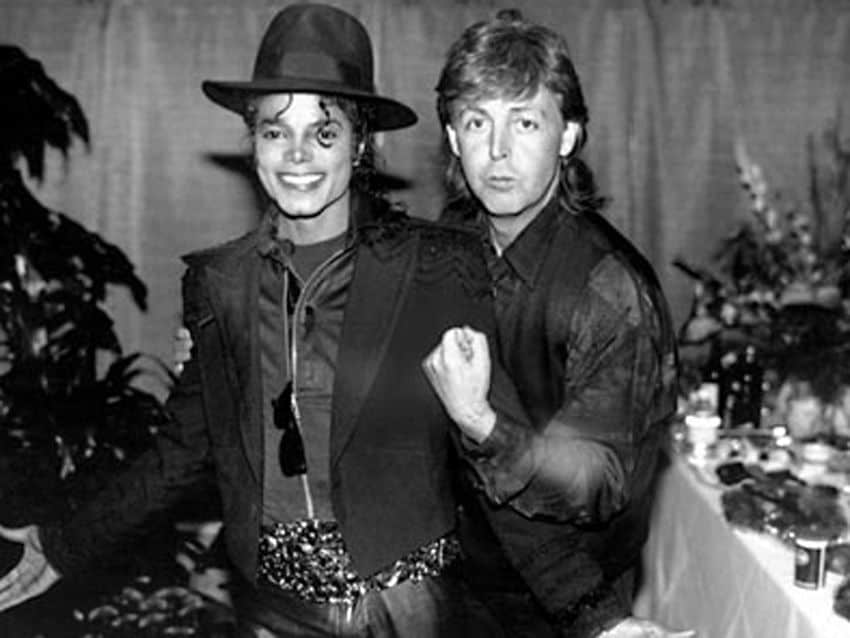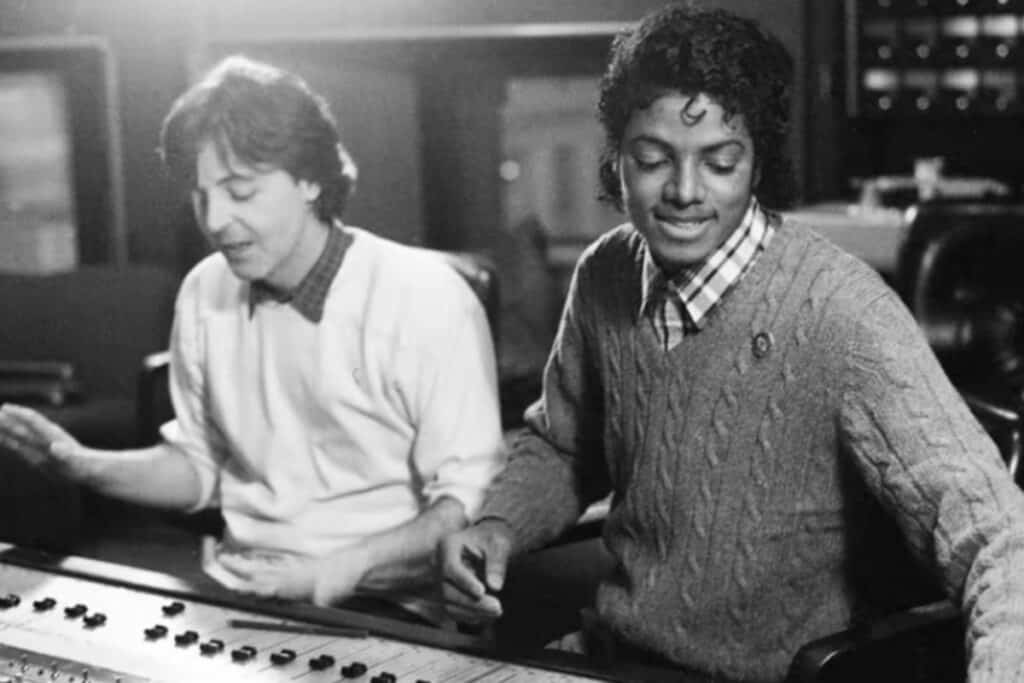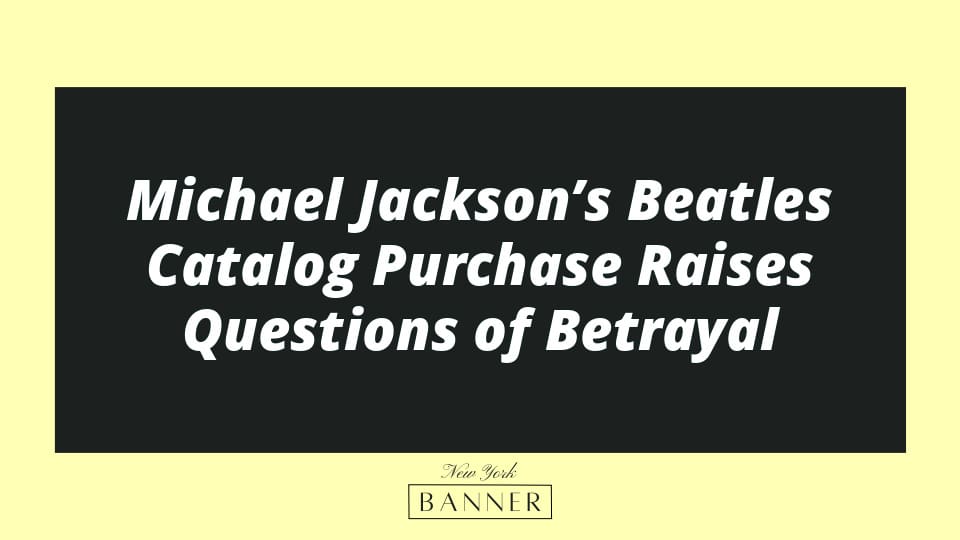One of the band's members found it odd that the King of Pop would purchase the rights to the band's music without consulting them first.
In a shocking turn of events, it had come to light that George Harrison, a member of the iconic band The Beatles, found it strange when Michael Jackson acquired the rights to The Beatles’ catalog in 1985.

What perplexed the situation for Harrison was that Jackson was supposed to be a friend of his bandmate, Paul McCartney. The catalog purchase included all of the songs written by McCartney and John Lennon and some of Harrison’s compositions.
To understand the origins of this complex situation, we need to travel back to 1963. At the time, a music publisher named Dick James had set his sights on becoming The Beatles’ publisher. To impress the band’s manager, Brian Epstein, James organized their first television performance on the show “Thank Your Lucky Stars.”
Subsequently, James proposed the establishment of Northern Songs, a company that would house the Lennon-McCartney songs along with those written by Harrison and Ringo Starr. Not fully comprehending the implications, Epstein and The Beatles signed the necessary contracts.
Paul McCartney later revealed that at the time, he and John Lennon were unaware that songs could be owned. They assumed that songs existed in the air and could not grasp the concept of copyright. Exploiting their naivety, publishers took advantage of the situation. The Beatles requested their own company, believing they would have complete ownership. However, they ended up with only 49 percent ownership, while James and Charles Silver retained 51 percent.
Paul said at that time, acquired by the Beatles Bible, “John and I didn’t know you could own songs. We thought they just existed in the air; we could not see how it was possible to own them. We could see owning a house, a guitar, or a car; they were physical objects. But a song, not being a physical object, we couldn’t see how it was possible to have a copyright in it. And therefore, with great glee, publishers saw us coming.”

“We said to them, ‘Can we have our own company?’ They said, ‘Yeah.’ We said, ‘Our own?’ They said, ‘Yeah, you can. You’re great. This is what we’re going to do now.’ So we really thought that meant 100 percent owned. But of course, it turned out to be 49 percent to me and John and Brian and 51 percent to Dick James and Charles Silver.”
As the years went by, the company underwent restructuring, and by 1965, John and Paul owned 15 percent each, while James and Silver also had 15 percent each. The remaining shares were divided among various entities, leaving Harrison and Starr with a mere 1.6 percent combined.
In 1968, Harrison and Starr chose not to renew their contracts with Northern Songs. Their relationship with James deteriorated the following year when he sold Northern Songs to Sir Lew Grade, the head of the British television network ATV, without allowing The Beatles to purchase it. This transaction resulted in John and Paul losing control of their songs’ rights.
Fast forward to 1985, when The Beatles’ catalog rights were put up for public auction. To everyone’s surprise, Michael Jackson emerged as the buyer, acquiring the collection of 4,000 songs, including 250 by Lennon-McCartney, for a staggering $47.5 million. This move left Harrison feeling bewildered, as he had considered Jackson, a friend of McCartney’s.
The irony was not lost on Harrison, who had collaborated with Jackson on the hit song “Say Say Say” for McCartney’s 1983 album, “Pipes of Peace.” During their collaboration, Paul had given Jackson some music publishing advice, to which Jackson cryptically replied, “One day, I’ll own your songs.”

In an interview with CNN in 1988, Harrison expressed his puzzlement over Jackson’s ownership of The Beatles’ catalog, highlighting their supposed friendship. He mentioned that he had only a small number of his own songs in the catalog and jokingly requested their return, as they didn’t generate much revenue for Jackson. Harrison even expressed his desire to include them in his will for the benefit of his son.
Jackson, however, seemed determined not to sell the catalog back to the group that had made it famous, leading to the deterioration of his relationship with McCartney. Despite numerous attempts by McCartney to buy back the catalog, Jackson steadfastly refused, causing a permanent rift between the two. McCartney lamented that while he had initially written those songs for nothing, he couldn’t justify repurchasing them at exorbitant sums.
Nevertheless, the story took a new turn in the following years. After facing financial difficulties, Jackson eventually sold 50 percent of ATV, including The Beatles’ catalog, to Sony for a staggering $95 million. This transaction gave Sony complete control over The Beatles’ songs following Jackson’s untimely death.
In 2017, Paul McCartney reached a settlement with Sony/ATV regarding the copyright to The Beatles’ catalog under the US Copyright Act of 1976. This act allows songwriters to reclaim their copyright from music publishers 35 years after they initially signed them away. As a result, The Beatles finally regained ownership of their music, bringing closure to the long-standing saga.
With the music now back in the hands of the band that created it, the late George Harrison and John Lennon can finally rest in peace, knowing that their musical legacy is once again under the control of their fellow Beatles and no longer subject to the complexities of ownership and personal friendships.

